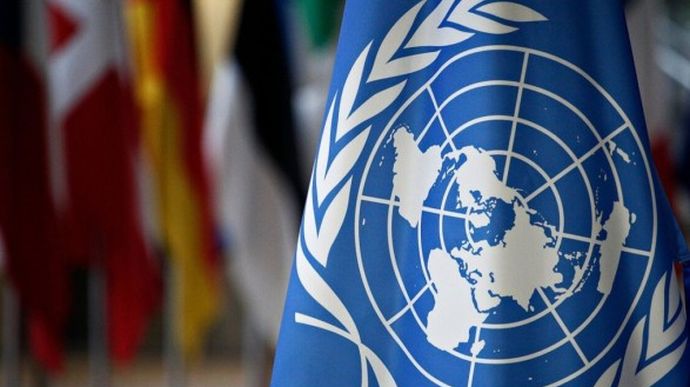The closing of Ukraine’s southern ports could trigger a global food catastrophe, the U.N. warns.

As Russia gears up for a military offensive in eastern and southern Ukraine, the United Nations warned on Saturday that closures of ports on the Black Sea could trigger a global food catastrophe that yields starvation, mass migration and political instability.
Ukraine’s silos are brimming with grains that in a normal year help feed 400 million people around the world. But the supply chain has been disrupted by the war, with ports unable to operate normally near the heart of a war zone.
“You pull that off the market,” David Beasley, executive director of the U.N.’s World Food Program said in a phone call from Ukraine’s western city of Lviv, “you begin to realize you have a perfect storm coming our way.”
Mr. Beasley spoke at the end of a four-day visit to Ukraine to explore ways to deliver food to around 1 million Ukrainians trapped in cities and other areas cut off by Russian forces and to examine the wider threat to global food markets.
The food-supply challenge within Ukraine was not complicated, he said. “We’ve got the food, we’ve got the money, give us the access.”
The challenge for global food supplies is keeping open the southern ports of Odesa, Chornomorsk, Yuzhny and Mykolaiv on the Black Sea coast, which are in Ukrainian hands but threatened by Russia’s anticipated offensive.
Mr. Beasley said he had spoken by phone and set out his concerns in writing, but that the Kremlin had not responded to any of the U.N.’s concerns.
“We have made no headway whatsoever,” he said.
“This is where the international community has got to come in and make some very serious decisions about protecting ports for humanitarian purposes and opening up ports for the whole world,” he added, “because the whole world is going to pay a price if we don’t get the ports open.”
Some 45 million people in 38 countries are “knocking on famine’s door as we speak” thanks to the cumulative toll of wars, droughts and the Covid-19 pandemic, Mr. Beasley said. The Ukraine war’s impact on food prices and fuel and shipping costs looks set to drive that number up and limit the U.N.’s capacity to help them.
Operating costs of the U.N. food program have risen by $71 million a month, Mr. Beasley said. “That means we will be feeding four to five million people less a year because of the cost increase alone.”
The short-term problem is a financial one, Mr. Beasley said, adding that rich countries and the world’s billionaires needed to step forward to plug the funding gap, which is around $8 billion.
The more alarming threat is the longer term challenge to global food markets. Ukraine’s farmers could still produce a harvest that would help feed the world’s hungry if the war were to stop now, he said — but not if the southern ports and Black Sea shipping routes remain shut.
Mr. Beasley said he is urging leaders of the Group of 7 nations and other governments to get unused agricultural land back into production to offset the possible loss of Ukrainian and Russian food supplies but warned that global food market shortages and further dramatic hikes in food prices would spell disaster for poor countries.
“You will have famine, death and starvation,” he said, “you will have the destabilization of several nations and you will have mass migration.”
Read also
Wheat in Southern Brazil Impacted by Dry Weather and Frosts
Oilseed Industry. Leaders and Strategies in the Times of a Great Change
Black Sea & Danube Region: Oilseed and Vegoil Markets Within Ongoing Transfor...
Serbia. The drought will cause extremely high losses for farmers this year
2023/24 Safrinha Corn in Brazil 91% Harvested
Write to us
Our manager will contact you soon



